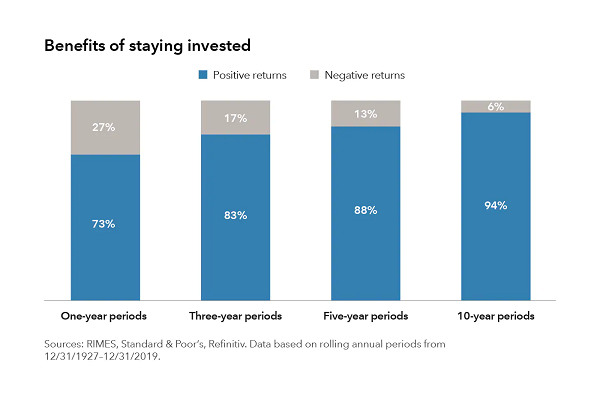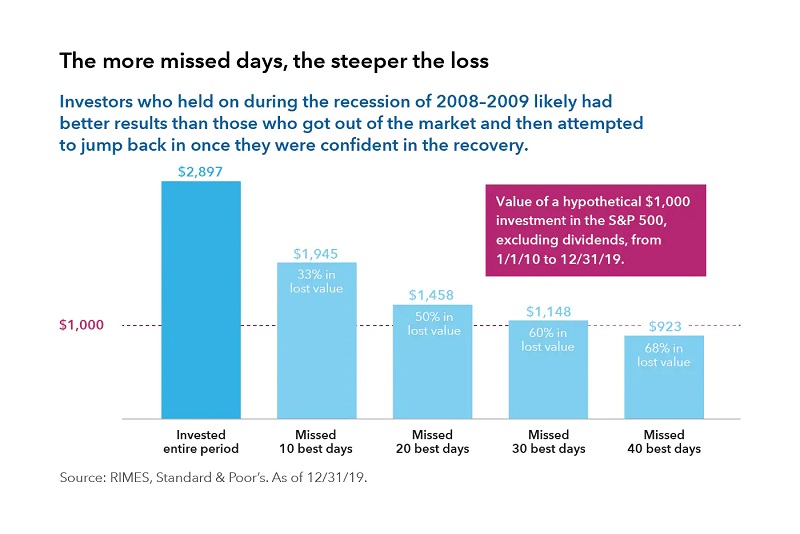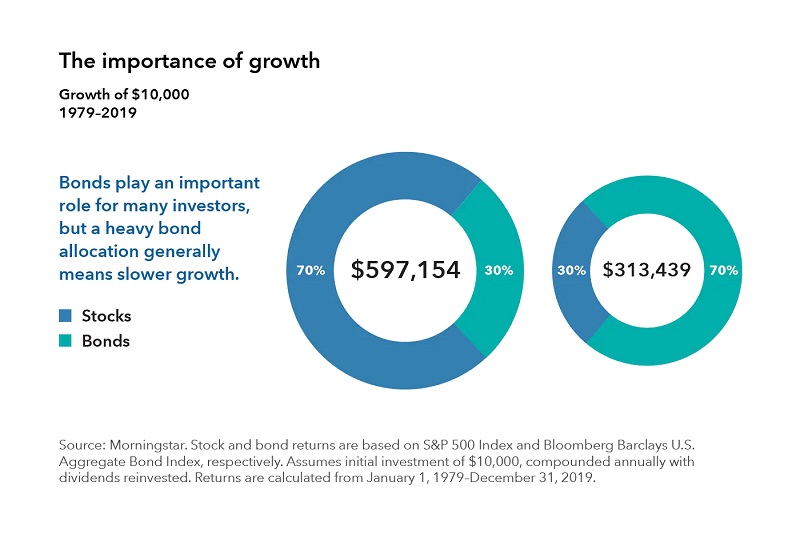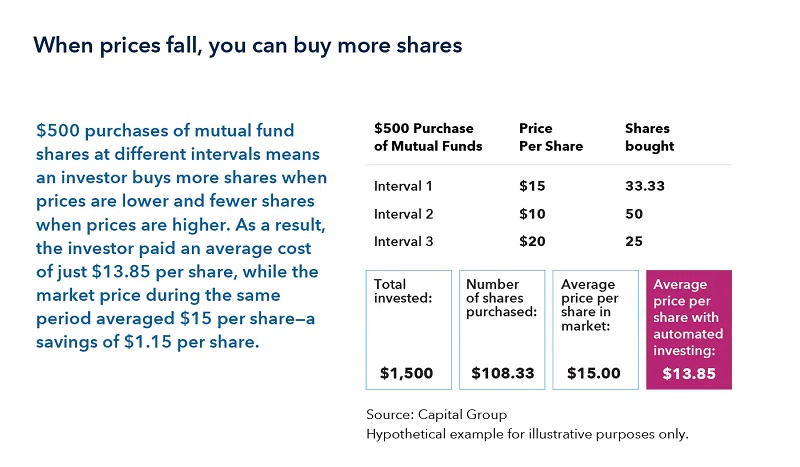Market crashes are alarming to say the least. In the midst of sharp declines, investors might feel like they should do something to protect their investments. When people start questioning their investment strategy, it’s important to remember that feeling nervous is normal, and taking part in the panic might not be in their best interest. Actions driven by fear and emotion can hurt investment outcomes more than a temporary bear market.
Investors who stick with their investment plan through the market’s highs and lows are more likely to come out ahead, especially over the long run. Historically, if you held stocks for just one year, you would have lost money 27% of the time. But if you extended your holding period to ten years, you would have experienced losses just 6% of the time.

Since 1929, every downturn in the S&P 500 of 15% or more has been followed by a recovery, with an average first-year return of 55%. Investors who fail to get back in to the market at the right time can miss out on the full benefit of market recoveries.

Moving toward conservative investments like bonds can be appealing during times of market volatility. But a more conservative investment mix might result in less growth over the long run than a person will need to achieve their investment goals. Investment strategies are created based on an individuals’ unique set of goals, not a market benchmark or index.

In other areas of life, when the price drops, buyers are happy to get the product on sale. A stock market decline can be a time to rebalance or diversify a portfolio and buy certain investments at attractive prices. If an automatic investment strategy is in place, the same amount of money buys more shares when the markets are down and prices are lower.

